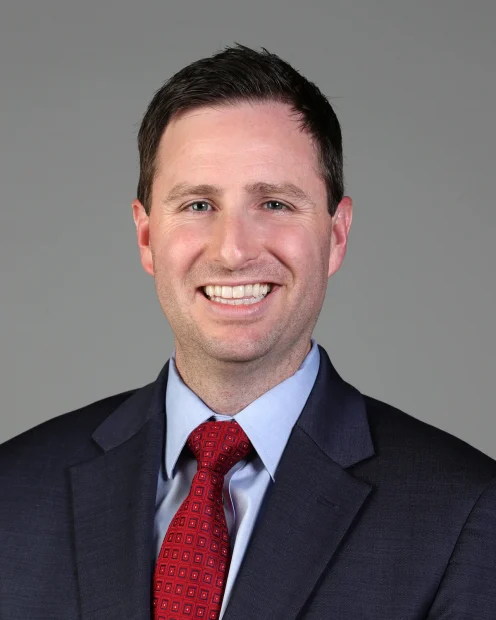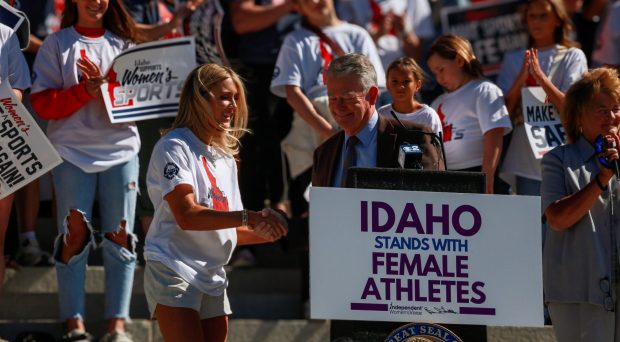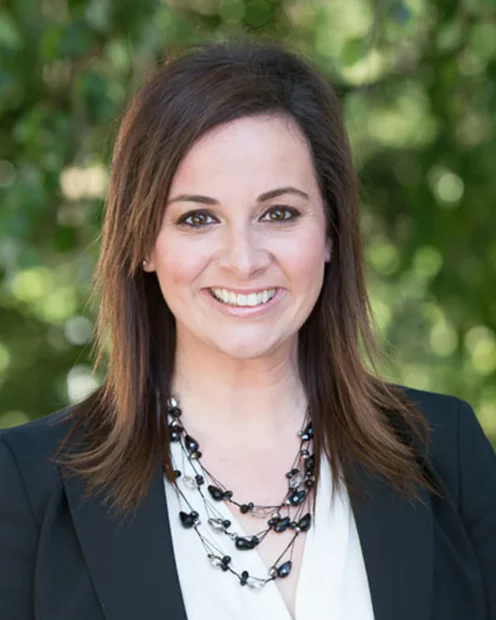In a Sunday email to a now-former donor, disappointed by Boise State University’s decision to forfeit a volleyball match two days earlier, Athletic Director Jeramiah Dickey made one point clear.
The buck stopped with him.

“I understand the decisions I make as a leader will not always be celebrated and hope you will reconsider your support in the future,” Dickey wrote in the Sept. 29 email, obtained by Idaho Education News through a public records request.
Publicly, Boise State has said next to nothing about forfeiting its Sept. 28 match with San José State University. Boise State has never said whether administrators or players made the call. Boise State has never explained the reason for the forfeiture — although this quickly became apparent. Reportedly, San José State has a transgender athlete on its women’s volleyball roster.
The forfeit made national headlines and thrust Boise State — however hesitantly — into the emotional debate over transgender athletics. Thrust into a higher education culture war, Boise State has sought the role of a pacifist.
Emails obtained by EdNews break the university’s silence. They offer a glimpse into Boise State’s internal conversations about forfeiting the match. They reveal that national groups lobbied administrators to forfeit the match — to protect the safety of their players, but also to take a stand on transgender athletics.
And the emails show that Boise State administrators have been praised, and vilified, for their decision.
EdNews is one of at least three Idaho news organizations that have used Idaho’s public records act to unlock this story. Boise State Public Radio and the Idaho Statesman published stories earlier this week.
The internal conversations
It was a textbook Friday afternoon news dump. With no advance word, and with no further comment or followup interviews, Boise State issued a terse statement on Sept. 27, saying its women’s volleyball team would not play at San José State the following evening.
Conversations about a forfeiture began several days earlier. On Sept. 21, a Saturday, Dickey emailed volleyball coach Shawn Garus and three members of his staff, to find a time “to discuss SJSU.” The group met via Zoom the following Monday, with university general counsel Matt Wilde brought into the conversation.
The topic was clear: a San José State player identified in court documents as a transgender athlete.
“I think what is important to understand is that student-athletes may have feelings about the topic that they want to share, but maybe not in the group setting,” said Christina Van Tol, a senior associate athletic director, in a Sunday, Sept. 22 email preceding the Zoom meeting. “I think the goal is to allow them to share whether or not they have hesitation or issues with playing against the SJSU player.”
James Dawson of Boise State Public Radio reported Monday on Van Tol’s email, and the internal discussions preceding the forfeit.
In her email, Van Tol suggests an anonymous survey to gauge player concerns. It’s unclear whether that happened — and it’s unclear what role, if any, players had in the decision.

Also unclear is Boise State President Marlene Tromp’s role in the decision, if any. Tromp was not involved in any of the department’s internal conversations, according to emails obtained by EdNews.
“University leadership, which includes athletics, made the decision.” Boise State Chief Communications and Marketing Officer Lauren Griswold said in a written response to EdNews Friday. Her statement said nothing about whether players had a say in the process.
The question of who drove the forfeit — the players or the administration — is an important one. And while Boise State has said little about its process, prior to Friday, one of its Mountain West Conference rivals is engaged in a public skirmish with heavy political overtones.
University of Nevada players voted to forfeit an Oct. 26 match with San José State, but the university has said the match will go on as scheduled.
Brian Sandoval, a former Nevada governor who is now president of the university, said the university will honor the student-athletes’ First Amendment right to play in the match, or to refuse to play. He also said the university has no constitutional authority to forfeit a match “for reasons related to gender identity or expression.” Current Nevada Gov. Joe Lombardo, a fellow Republican, supports the player boycott.
The political and external pressure
Transgender athletics was a hot-button issue in education and sports, long before Boise State administrators began deliberating about the Sept. 28 San José State match.

The 2020 Idaho Legislature passed a law banning transgender athletes from competing in girls’ and women’s sports, but that law remains mired in court. On Aug. 28, Gov. Brad Little signed an executive order with the same stated goal: protecting “fairness in women’s sports.” When he signed the executive order, Little was flanked by Riley Gaines, a former University of Kentucky swimmer who has become a leading figure in the transgender athletics debate.
Little’s executive order did not factor into Boise State’s decision, at least based on the emails received by EdNews. And it doesn’t appear that state legislators pushed Boise State to boycott — which was not the case elsewhere. The University of Wyoming canceled its match with San José State, in the face of public pressure from lawmakers.

“Boise State was not pressured by any elected official to make a decision,” Griswold told EdNews Friday.
However, at least three national groups actively lobbied Boise State to boycott.
The Independent Council on Women’s Sports, or ICONS, contacted Tromp directly on Sept. 24. Based in Henderson, Nev., ICONS supports a lawsuit against the NCAA over allowing transgender athletes to compete in women’s sports. Gaines is listed as the lead plaintiff in the lawsuit. Brooke Slusser, a San José State women’s volleyball player, recently signed on as a plaintiff.
Concerned Women for America also made its case to Boise State. On Sept. 26, senior advisor Doreen Denny held a conference call with several university administrators, including Dickey, Wilde and Jennifer White, Boise State’s assistant vice president for finance and operations and senior counsel for government relations.
Based in Washington, D.C., Concerned Women for America has filed a complaint against San José State, saying the volleyball program has violated Title IX, a landmark federal education law banning discrimination based on gender.
The Alexandria, Va.-based Young Women for America made its written appeal to Tromp on Sept. 27, the day the forfeit was ultimately announced. “Moving forward with the game not only puts Boise State’s female athletes in physical danger but communicates a tremendous lack of care for the dignity of women.”
Boise State says these groups had no direct influence on the decision to forfeit. “That decision was informed by a variety of perspectives, but was not made because of ‘external lobbying,’” Griswold said Friday.
The aftermath
As soon as Boise State announced its decision, the emails began to come in. From campus. From Boise. From as far as California and Virginia.
Boise State released nearly 40 emails received after the forfeiture — and they were almost evenly split. Supporters commended Boise State for courage. Critics condemned Boise State for cowardice.
“It seems wild that we have to say thank you for not allowing a man to play against our women, but here we are,” wrote Courtney and Steven Tracy.( Steven Tracy is a former Boise State football and basketball player.)
“It gives me hope and pride knowing there are others willing to stand up to protect our young female athletes and keep things fair,” wrote KC MacDonald, athletic director of North Idaho’s Clark Fork Junior and Senior High School.
“Using the players as a political pawn is disgraceful,” wrote Graham McBride of Boise. “If you are going to be a bigot — say it loud and proud so you can make your hatred clear.”
The email tally might be somewhat skewed. Boise State released more than a dozen emails from students, with similar or identical wording. The university redacted the students’ names, citing the federal Family Educational Rights and Privacy Act. But the emails had common phrasing and a common tone, saying the forfeiture is harmful to the university’s LGBTQ community.
Tromp appeared to have mixed views about the email blitz. In one Sept. 29 email to Dickey, Tromp says she had received “several truly heartbroken messages” from students. That same day, Tromp asked Griswold to dig into the emails.
“I suspect there is a click and send for this,” Tromp wrote. “Can your team discover it?”
Trevor Aguiar was one of the first people to contact Dickey. The co-founder of the Idaho EYES Project — for Equity in Youth Education & Sports — Aguiar wrote on Sept. 27 to cancel his monthly contributions to the Bronco Athletic Association.
“Boise State IS better than this,” he wrote. “The CITY of Boise IS better than this. We are ‘a city for everyone.’”
Dickey wrote back two days later. In this email, he said the decision was his — and said it wasn’t easy.
“Please know these decisions are not made lightly nor are they made in a silo,” Dickey wrote.
San José State sounds off
From the beginning of the volleyball controversy, San José State has maintained that its volleyball program is following the rules of the NCAA, the governing body for intercollegiate sports.
On Sept. 30, San José State Athletic Director Jeff Konya contacted Dickey, his counterpart at Boise State, and did not hide his frustration.
“Your institution’s arbitrary decision not to play an otherwise eligible NCAA team has resulted in harm to SJSU financially and our institution brand,” Konya wrote. “I would ask to be made whole at the very least.”
Konya attached a dollar figure to the damages. Losing the chance to host a home match meant a loss of about $1,250 for concessions, parking and “various revenue sources.”
Shaun Goodwin of the Idaho Statesman first reported on Konya’s email.
Griswold says Boise State has not paid San José State any money, and said Dickey and Konya have not communicated on the matter.
A climate of near-complete silence
The public records offer insight into a decision Boise State has all but refused to discuss. Only on Friday, in advance to this story, did Boise State answer questions from EdNews.
The records also offer a behind-the-scenes look at an administration in a media fishbowl.
Boise State first began receiving questions about the volleyball match a few days before the announcement. Outkick, a Fox Corp.-owned site that has aggressively reported on transgender athletics, asked Boise State to respond to a tip about a possible forfeit. Boise State didn’t respond.
The Athletic, a New York Times-owned sports site, asked Boise State to elaborate on its 48-word statement on the San José State match, and was rebuffed.
On-campus journalists fared no better. Boise State declined an interview request from The Arbiter, the university’s newspaper. Calling the student journalist “earnest and sincere,” Tromp kicked the request to Dickey on Sept. 30.
“At this point, we aren’t doing any interviews due to the narrative dying down,” Dickey said that day.
Griswold also threw cold water on the request.
“I don’t think we should do interviews right now,” she wrote. “We respond with our statement and don’t have further comment at this time.”
The records answered some lingering questions — and the university answered a few more Friday. But other questions remain.
Including, for instance, the fate of the next San José State-Boise State match, scheduled for Nov. 21 in Boise.
“No decision has been made, but a decision is forthcoming,” Griswold said Friday.
